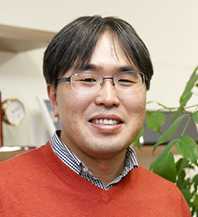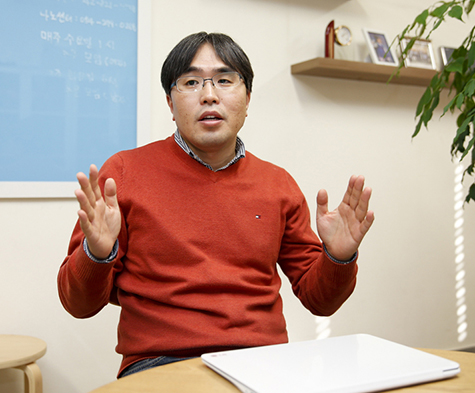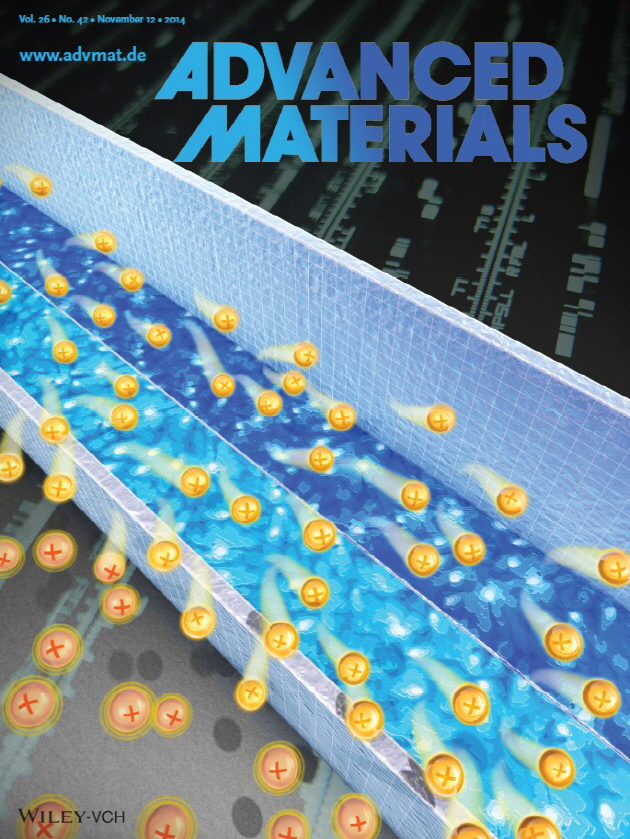YU and POSTECH joint research team investigated cause for drop in drive safety of organic thin-film transistors
Published as poster paper in 'world's most authoritative academic journal' in top 1.5% of the materials science sector
Expected to be used as various electronic elements such as flexible/wearable displays and smart cards
[November 13, 2014]

A joint research team between YU (President Noh Seok-kyun) and POSTECH (President Kim Yong-min) developed technologies that can advance the commercialization of elements used in bendable displays and folding smart devices.
The Department of Nano, Medical and Polymer Materials' Professor Kim Se-hyeon's research team investigated the cause of lower drive safety of organic thin-film transistors for flexible and wearable displays together with the research team of Professor Park Chan-eon of the POSTECH Department of Chemical Engineering.

Organic thin-film transistors can be produced at low temperatures and is light and can be bent or folded, so it is receiving a great deal of attention as a core element for organic electronic devices. However, its low drive safety limits long-term operation, which has been an obstacle in its commercialization.
Professor Kim Se-hyeon said, "It is necessary to procure drive safety for a long time to commercialize organic thin-film transistors, but the exact cause of the drop in drive safety has not yet been revealed." He added, "This study not only investigated the drop in performance such as charge transfer and drop in drive current that occurs when activating organic thin-film transistors for long times, but also investigated the bias-stress effect that occurs during long-term operation in terms of physics and chemistry."
The research team conducted research based upon the fact that the drive safety of elements drop when the fixed electric charge made by voltage placed on the transistor increases. In result, they found that there is an energy barrier on the wall of semiconductors and insulator films and that when voltage is applied to the transistor, the electric charge of semiconductors goes pass the energy barrier and moves to the insulator film to cause fixed electric charge. Based on these results, they succeeded in adjusting the energy barrier on the border by changing the surface of the insulator film. In result, they were able to block charge movement between the semiconductor and insulator caused by high energy barriers and successfully developed an organic thin-film transistor with high drive safety.

Professor Kim said with anticipation, "It will be possible to utilize the results of this research in various fields such as the flexible and wearable displays that are being developed actively recently, as well as RFID (radio-frequency identification tags) and smart cards."
Meanwhile, this study was conducted as a central researcher support project and rising researcher support project by the Ministry of Science, ICT and Future Planning and the National Research Foundation. The research results were published as the cover thesis (image on the left) in the latest edition (November 12) of the global academic journal <Advanced Materials (IF) 15.409>, which is in the top 1.5% of the materials science sector.



 A joint research team between YU (President Noh Seok-kyun) and POSTECH (President Kim Yong-min) developed technologies that can advance the commercialization of elements used in bendable displays and folding smart devices.
A joint research team between YU (President Noh Seok-kyun) and POSTECH (President Kim Yong-min) developed technologies that can advance the commercialization of elements used in bendable displays and folding smart devices. Organic thin-film transistors can be produced at low temperatures and is light and can be bent or folded, so it is receiving a great deal of attention as a core element for organic electronic devices. However, its low drive safety limits long-term operation, which has been an obstacle in its commercialization.
Organic thin-film transistors can be produced at low temperatures and is light and can be bent or folded, so it is receiving a great deal of attention as a core element for organic electronic devices. However, its low drive safety limits long-term operation, which has been an obstacle in its commercialization. Professor Kim said with anticipation, "It will be possible to utilize the results of this research in various fields such as the flexible and wearable displays that are being developed actively recently, as well as RFID (radio-frequency identification tags) and smart cards."
Professor Kim said with anticipation, "It will be possible to utilize the results of this research in various fields such as the flexible and wearable displays that are being developed actively recently, as well as RFID (radio-frequency identification tags) and smart cards."





